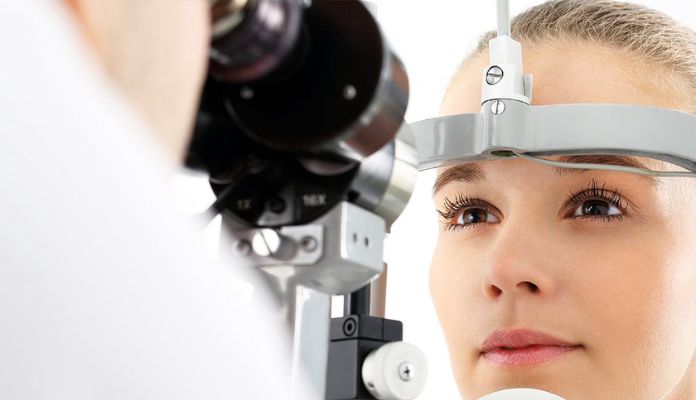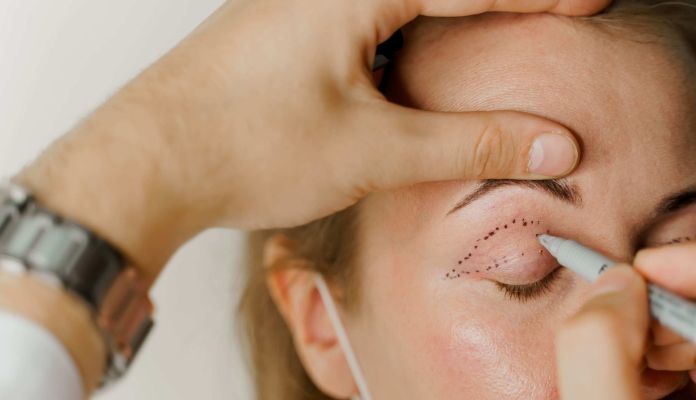Introduction
you’re considering upper eyelid surgery, doing your homework and preparing yourself as best as possible is essential. The first step of surgery is to meet with an ophthalmologist specializing in upper eyelid surgery. The ophthalmologist will determine whether the procedure will be done on an outpatient basis or if an overnight stay at the hospital will be required. If you wear contacts, you’ll need to stop wearing them for two weeks before Surgery; if you wear glasses, the doctor will want you to switch to contact lenses during this recovery period after your eyelid surgery but not before!
Read Also WAP
The first step of eyelid surgery
The first step of eyelid surgery is to meet with an ophthalmologist specializing in eyelid surgery. It will determine whether the procedure will be done on an outpatient basis or if an overnight stay at the hospital will be required. If you wear contacts, you’ll need to stop wearing them for two weeks before Surgery so that your eyes can heal entirely before resuming contact lenses.
Once you’ve met with your ophthalmologist and learned more about what’s involved in this procedure, make sure that they book their date for when they want it done to begin scheduling all other steps necessary for getting ready!
Read Also Network Solutions
Time of staying in Hospital:
The ophthalmologist will determine whether the procedure will be done on an outpatient basis or if an overnight stay at the hospital will be required. The doctor will make this decision based on your medical history, overall health, and procedure. Your ophthalmologist may decide that you must stay in the hospital because they are concerned with your vision while they perform Surgery. If you get admitted overnight, several different rooms are available depending on what kind of Surgery is being performed (for example, general and intensive care).
Instructions regarding contact lenses before Surgery
If you wear contact lenses, you’ll need to stop wearing them for two weeks before Surgery. Contact lens wearers should also schedule an appointment with their eye doctor at least one week before Surgery.
Contact lens removal can be difficult after eyelid surgery and may require additional laser therapy or surgical intervention to remove the lens. Sometimes a tiny piece of plastic needs to be placed over the top of your eyes while they heal so that they don’t dry out too much while they’re healing (this will be done on an outpatient basis). If contact lenses are causing discomfort during recovery or if there’s an infection present, this could lead to permanent vision loss!
Switching from wearing glasses to contact lenses:
If you wear glasses, the doctor will want you to switch over to contact lenses during the recovery period after your eyelid surgery. Contact lenses are easier than glasses because they are more comfortable and less likely to break. However, if you have never worn contacts before, it’s best not to do so immediately after an eye procedure like eyelid surgery or cataract removal. The first few days after these procedures can be painful and swollen, so some people might experience pain when removing their new contacts from their eyes.
You’ll need to quit a month before eyelid surgery if you smoke.
Smoking can cause serious complications, such as dry eyes and blindness. So, quitting smoking before eyelid surgery is vital to avoid these problems.
Series of tests to be done before your Surgery
Before your Surgery, you’ll also have a series of tests to ensure eyelid surgery is the accurate decision for you and that your eyes are healthy enough for the procedure.

The first step in this process is an eye exam. During this appointment, your doctor will check how well-aligned your eyes are (the distance between each eyelid) and how much pressure they can withstand without causing strain or damage. They may also take pictures of them using unique cameras so they can see what’s going on inside there!
Afterward, patients will be asked to return once their eyes have healed up—this time with blood work and other screenings such as x-rays or CT scans (which involve taking pictures). These tests help doctors determine if any issues exist before proceeding with any Surgery; it’s important because some people may need more than one type of treatment before finally getting rid of their drooping lids forever!
Assistance required after Surgery:

Make sure someone is available to take you home from the hospital and provide care for at least 24 hours after eyelid surgery. It is essential because you will be under general anesthesia.
If you have any further questions or concerns about this procedure, contact our clinic today!
Preparation before Surgery is mandatory;
Like any other surgical procedure, it’s essential to do your homework and prepare yourself as best as possible before undergoing a surgical procedure on your eyes.
• You should be prepared for the recovery period. Most eyelid surgery cases require you to take time off work until you can go back to work after the Surgery is completed and fully healed. It can vary depending on what procedure is being done. Still, generally speaking, it will be at least two weeks before returning full-time after having had this type of Surgery done on your eyelids (and sometimes even longer). You’ll also need someone who knows what they’re doing around the home when it comes time for post-op care; this could mean hiring help from friends/family members who live nearby so that their support won’t cost anything extra but still offers convenience if needed.”
Conclusion
If you’re considering eyelid surgery, many things can go wrong. However, if you take the time to prepare yourself physically and mentally, it will make the process of getting ready easier on yourself and make for a better outcome in the long run.

